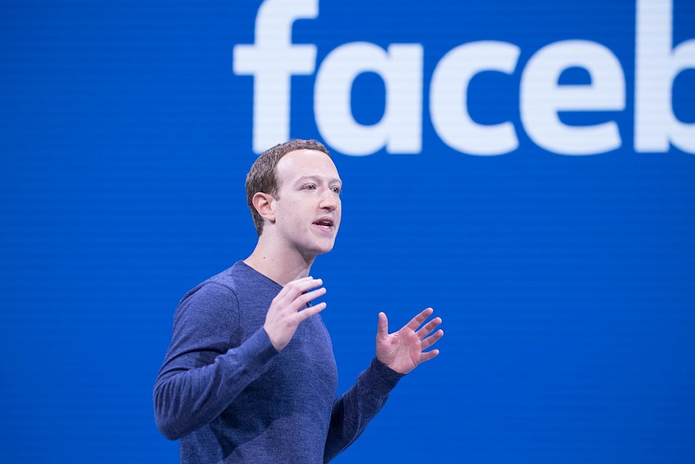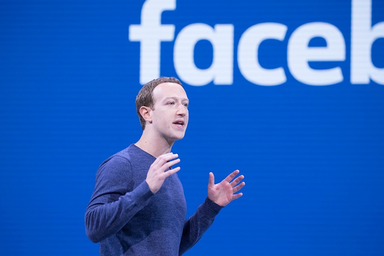Surprise! It’s been officially confirmed that scrolling through your social feed negatively affects your mental health. During the Facebook trial, a whistleblower recently admitted during a recent Senate subcommittee hearing that the company knows its platforms have negative consequences on users’ mental health and has been researching it since 2019 — thanks for that confirmation, Facebook. We never saw this coming! Just kidding.
Obviously, no one is shocked — but all jokes aside, Facebook’s social empire hasn’t helped the mental health problem by finally confirming what we’ve all known for years. The real problem is that even after FB’s admission, their info on mental health STILL wasn’t presented with ways to fix the problem — so I thought I’d make that clear.
Here’s what social media is doing to your mental health, and what you can do to help yourself (because we all know Facebook won’t be taking any action).
Your parents might have told you social media is bad news, but let’s be real — you probably didn’t listen, right? This is the 21st century, and even if your parents didn’t approve, you probably started social accounts early to keep up with your peers and the rest of the world.
Management teams at Facebook know social media is dangerous and have known since at least 2017 when they admitted their sites left users feeling worse. That’s no surprise, considering we’re all familiar with how edited photos damage self-esteem. Still, they did nothing to stop fake, edited photos that gave us a warped sense of what our lives and bodies should look like in comparison to others (much like they won’t do anything to stop COVID misinformation from spreading today — are we really surprised?).
If you have the resolve, you could drop social media altogether — but I’m not suggesting you go live under a rock.
Instead, learn to recognize posts that reinforce negative beauty standards. Unfollow people who post images of photoshopped waists and objectified, sexist standards that make you feel inadequate. You *don’t* *need* *that* *energy,* girl. Reminding yourself that you deserve respect and self-love without doing anything to earn it is an active way to protect your mental health in a digital world that obviously preys on young women.
But damaged self-esteem is only one piece of the puzzle. What about increased anxiety? No one wants to admit it, but FOMO is real, no matter how old you are. You might look at social media time as a break from the real world, but when’s the last time you closed your feed feeling refreshed and encouraged? Me neither. Instead, I usually toss down my phone after a mindless half hour of seeing my former classmates’ lives looking a lot better than mine, and I think, what have I even accomplished in MY life?
When you feel your anxiety increase, it’s time to close your favorite apps. If you’re not browsing digital feeds that influencers, friends and celebrities constantly update, you’ll find more peace with your life, your friend group, your major, or your career path. Leaders at these social media companies should stop encouraging more time on socials and use their international platforms to encourage us to share more authentic versions of ourselves — or better yet, find anxiety-fighting hobbies to replace our browsing habits.
Try going for a walk, taking up a new form of art or joining a real-world social group like volunteering at a soup kitchen. The more you enjoy real life, the less your FOMO anxiety will rear its ugly head.
Finally, while a lot of social media use leads to internal conflict, I have to talk about external threats, too. Facebook knew social media was dangerous years ago, but — are we sensing a pattern? — it’s done little to prevent the tragic and damaging effects of issues like cyberbullying. Girls are more likely to experience cyberbullying than boys based on what they post or who they’re friends with. Even if people only connect with people they know, social media is bad for mental health because it provides a digital mask for people to say horrible things. If you haven’t experienced this personally, you probably know someone who has.
There are ways to fight back against cyberbullying, even if you’re too old to report comments to a “grown-up.” You can mute comments, block people or report them. Don’t worry — they won’t know it was you. It might also help to limit your social media use with app blockers that help limit your intake to specific time blocks in the day.
Anyone on the internet knows social media and good mental health don’t mesh. Unfortunately, we also seem to have accepted that we’re not getting out from under the thumb of these social media apps (because of course, you need everyone to see what you ate when you went out for brunch yesterday!). And with Facebook’s record of almost cartoon villain levels of evil, it remains to be seen whether any systemic changes will be made to address these concerns (the trial won’t pick back up until January). But if we’re not giving up social media cold-turkey, we don’t have to wait around for social media moguls to make changes — we can take control of our own mental health. Use tools and strategies like app blockers, limited social time and new hobbies to keep your head out of your screen and in the real world. You might just realize life is better than a fake feed.


